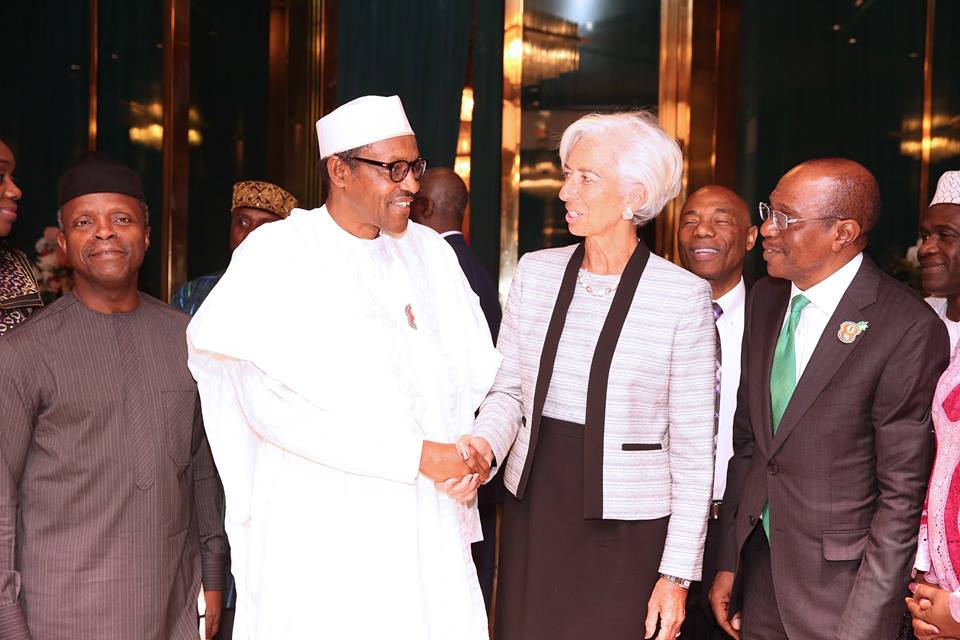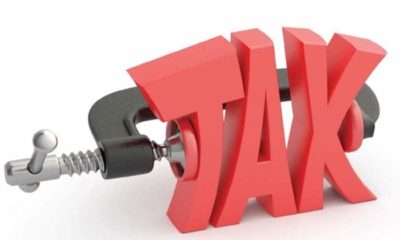- IMF Urges FG to Remove Tax Incentives, Reform VAT
The International Monetary Fund has urged the Federal Government to eliminate tax incentives and reform Value Added Tax as part of efforts to stimulate economic growth.
The IMF said on Wednesday that its executive board concluded the 2019 Article IV Consultation with Nigeria on March 27, 2019.
“Nigeria’s economy is recovering. Real GDP increased by 1.9 per cent in 2018, up from 0.8 per cent in 2017, on the back of improvements in manufacturing and services, supported by spillovers from higher oil prices, ongoing convergence in exchange rates and strides to improve the business environment,” it said.
The Washington-based fund noted that headline inflation fell to 11.4 per cent at the end-2018, reflecting declining food price inflation, weak consumer demand, a relatively stable exchange rate and tight monetary policy during most of 2018, but remained outside of the central bank’s target range of six to nine per cent.
It said record holdings of mostly short-term local debt and equity and a current account surplus lifted gross international reserves to a peak in April 2018, while the three-times oversubscribed November 2018 Eurobond helped cushion the impact of outflows later in the year.
“However, persisting structural and policy challenges continue to constrain growth to levels below those needed to reduce vulnerabilities, lessen poverty and improve weak human development outcomes, such as in health and education,” the IMF said.
According to it, a large infrastructure gap, low revenue mobilisation, governance and institutional weaknesses, continued foreign exchange restrictions, and banking sector vulnerabilities are dampening long-term foreign and domestic investment and keeping the economy reliant on volatile oil prices and production.
The fund said, “Under current policies, the outlook remains, therefore, muted. Over the medium term, absent strong structural reforms, growth would hover around 2½ per cent, implying no per capita growth as the economy faces limited increases in oil production and insufficient adjustment four years after the oil price shock.
“Monetary policy focused on exchange rate stability would help contain inflation but worsen competitiveness if greater flexibility is not accommodated when needed.
The IMF executive directors said long-standing structural and policy challenges needed to be tackled more decisively to reduce vulnerabilities, raise per capita growth, and bring down poverty.
They, therefore, urged the Nigerian authorities to redouble their reform efforts, while supporting their intention to accelerate the implementation of their Economic Recovery and Growth Plan.
The fund said the directors emphasised the need for revenue-based consolidation to lower the ratio of interest payments to revenue and make room for priority expenditure.
It said, “They welcomed the authorities’ tax reform plan to increase non-oil revenue, including through tax policy and administration measures. They stressed the importance of strengthening domestic revenue mobilisation, including through additional excises, a comprehensive VAT reform, and elimination of tax incentives.”
The directors said securing oil revenues through reforms of state-owned enterprises and measures to improve the governance of the oil sector would also be crucial.
They welcomed the significant increase in public investment but underlined the need for greater investment efficiency.
The IMF said, “They also recommended increasing funding for health and education. They noted that phasing out implicit fuel subsidies while strengthening social safety nets to mitigate the impact on the most vulnerable would help reduce the poverty gap and free up additional fiscal space.”
They recommended stronger coordination for more effective public debt and cash management.
The directors also stressed that the elimination of exchange restrictions and multiple currency practices would remove distortions and facilitate economic diversification.
They welcomed the decline in non-performing loans and the improved prudential banking ratios but noted that restructured loans and undercapitalised banks continue to weigh on financial sector performance.
The IMF suggested strengthening capital buffers and risk-based supervision, conducting an asset quality review, avoiding regulatory forbearance, and revamping the banking resolution framework.
The directors also recommended establishing a credible time-bound recapitalisation plan for weak banks and a timeline for phasing out the state-backed Asset Management Corporation of Nigeria.
It said, “With inflation still above the central bank target, the directors generally considered that a tight monetary policy stance is appropriate.”

 Naira4 weeks ago
Naira4 weeks ago


 Naira4 weeks ago
Naira4 weeks ago




 Naira4 weeks ago
Naira4 weeks ago




 Naira3 weeks ago
Naira3 weeks ago
 Commodities4 weeks ago
Commodities4 weeks ago


 News4 weeks ago
News4 weeks ago
 Travel4 weeks ago
Travel4 weeks ago




 Naira3 weeks ago
Naira3 weeks ago



















